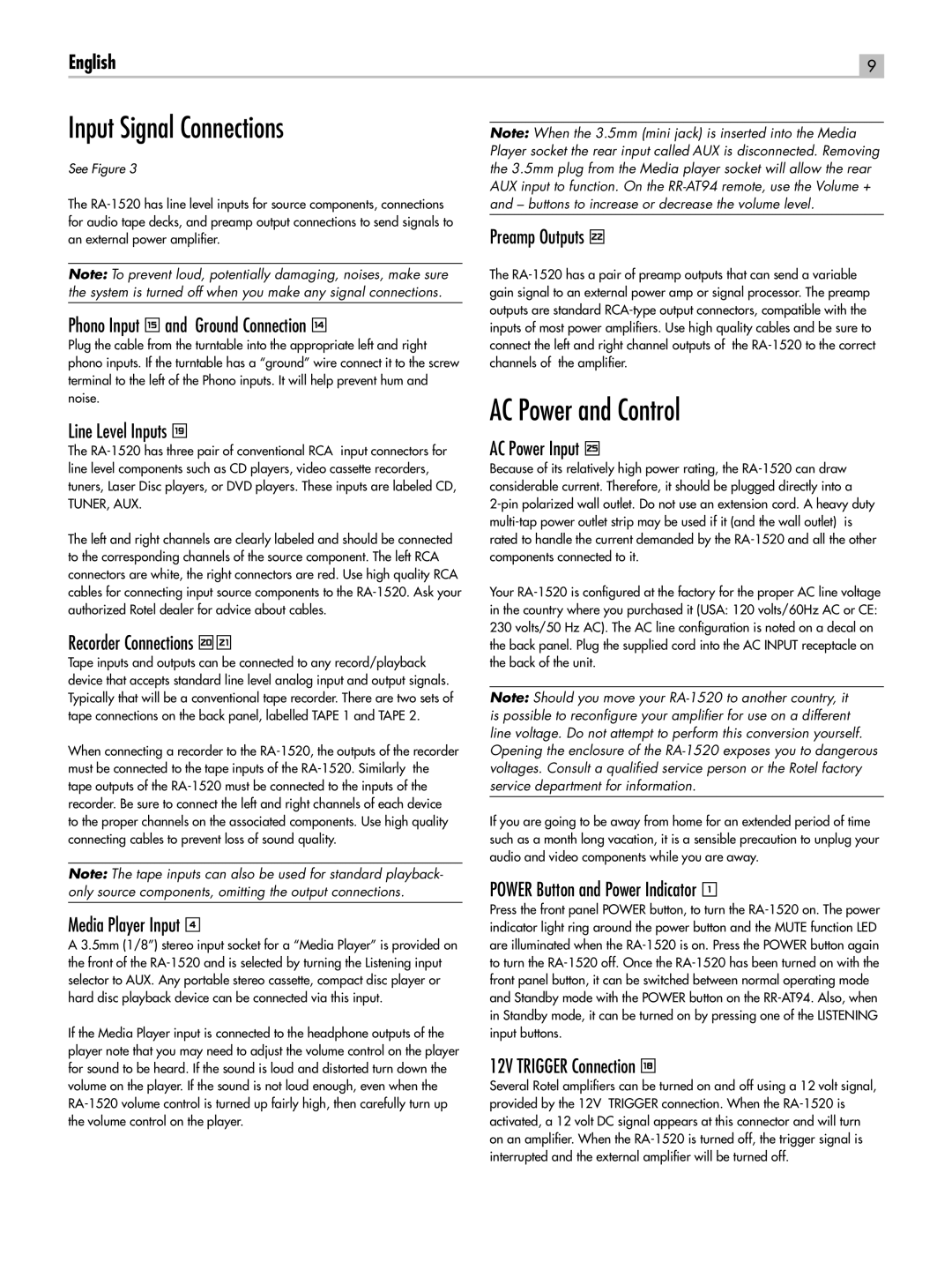RA-1520 specifications
The Rotel RA-1520 is an integrated amplifier that embodies the brand’s commitment to high-quality audio performance and sophisticated technology. Designed for audiophiles and casual listeners alike, the RA-1520 seamlessly combines power and refinement, making it a versatile addition to any sound system.One of the standout features of the RA-1520 is its robust power output. The amplifier delivers 60 watts per channel into 8 ohms, ensuring that it can drive a wide range of speakers effortlessly. This power allows for a dynamic listening experience, whether you are enjoying classical music with delicate nuances or cranking up the volume for your favorite rock tracks.
The amplifier incorporates Rotel’s proprietary Class AB amplifier circuitry, which strikes an optimal balance between efficiency and sound quality. This technology enhances tonal accuracy and provides a rich, immersive sound stage, making the listener feel as if they are at a live performance. Coupled with a high-quality toroidal transformer, the RA-1520 offers low distortion and a wide frequency response, which contributes to the overall clarity of audio playback.
Another important aspect of the RA-1520 is its versatility in connectivity options. It features multiple inputs, including five line-level RCA inputs, which allows users to connect various audio sources such as CD players, tuners, and streaming devices. Additionally, the unit includes a built-in phono stage for vinyl enthusiasts, catering to both moving magnet and moving coil cartridges.
The design of the RA-1520 is equally impressive. With a sleek and minimalist aesthetic, it fits seamlessly into any audio setup while maintaining a rugged build quality. The front panel features a user-friendly interface, allowing users to navigate through settings effortlessly and adjust volume levels with a smooth and precise control.
Furthermore, the RA-1520 is engineered to prioritize thermal management, ensuring reliable performance even during extended listening sessions. Its vents and heatsinks are thoughtfully designed to dissipate heat effectively, which enhances longevity and minimizes the risk of overheating.
In conclusion, the Rotel RA-1520 integrated amplifier is a perfect fusion of power, precision, and user-friendly design. With its advanced features and solid build quality, it stands as a testament to Rotel’s dedication to delivering exceptional audio performance that caters to the needs of both audiophiles and casual listeners alike. Whether you are building a new sound system or upgrading an existing one, the RA-1520 promises a satisfying and enjoyable listening experience.

